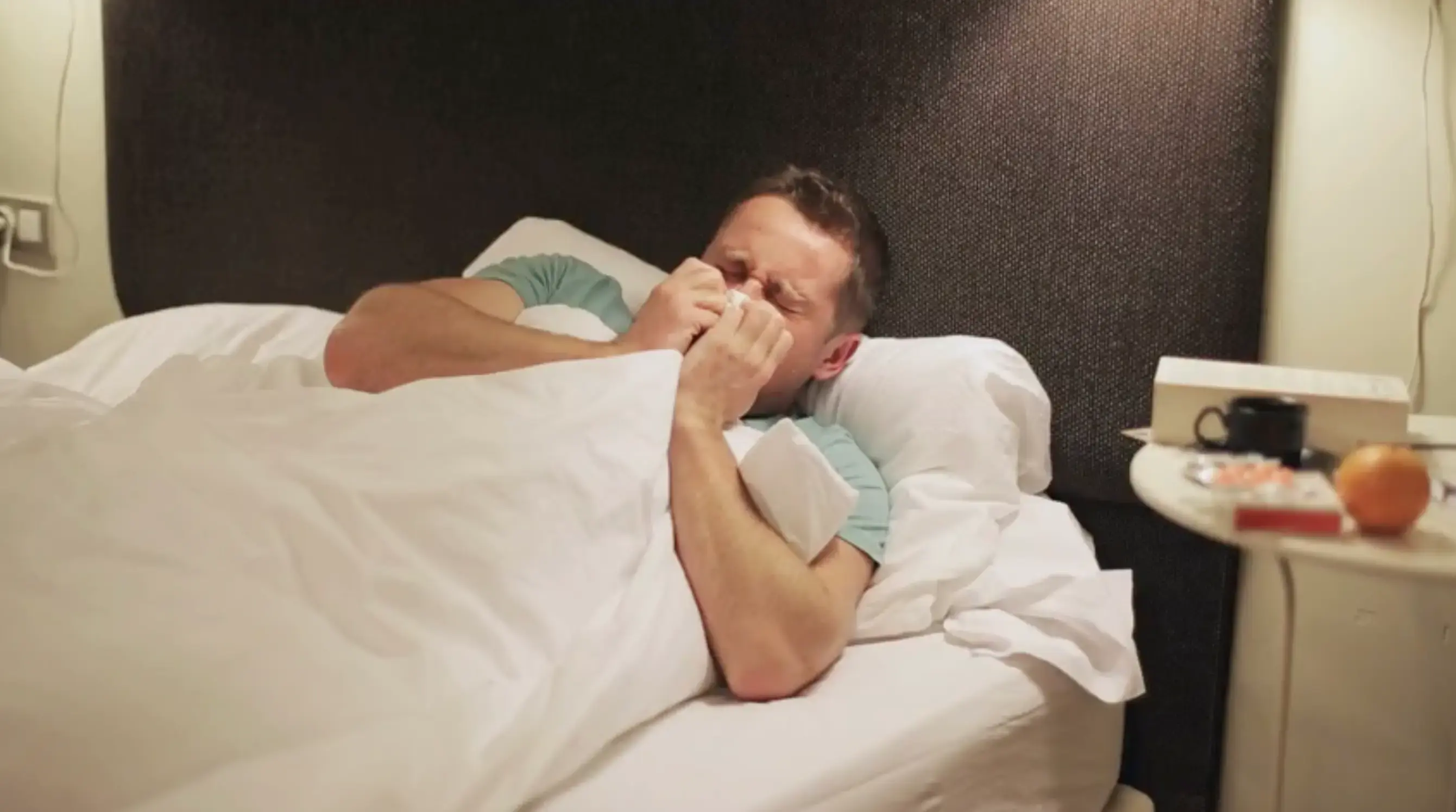Most colds resolve within 7 to 14 days, but when you’re dealing with symptoms like cough, stuffy nose, and sneezing, that can feel like an eternity. What’s worse is that symptoms can often feel more intense at night, even if you’ve spent the day feeling on the up-and-up.
Why do colds get worse at night? The short answer is, they don’t. If your immune system is fighting an infection, it’s unlikely that the infection is going to suddenly become stronger after sundown. What’s true is that symptoms feel more intense at night. There are real reasons your nighttime cold and flu symptoms feel worse than in the daytime. Read ahead to learn why you tend to feel more sick at night.
Understanding Why are Symptoms Worsen at Night
Why do my cold symptoms feel worse at night, you ask? There are a few reasons why your nighttime cold and flu symptoms can feel more egregious.
Circadian Rhythm
If you’re wondering, why do I feel more sick at night, it might have to do with your body’s internal clock, better known as the circadian rhythm. The circadian rhythm will tell your body when to rise and shine, and when to prepare for sleep. When your body recognizes it’s almost bedtime, it causes immune cells to become more active. These cells identify germs, causing inflammation to fight off infection, which in turn makes your symptoms feel more severe.[1]
Hormones Like Cortisol
Levels of the hormone cortisol (which regulates the body’s stress response) are typically elevated in the morning. This helps to suppress inflammation and reduce cold symptoms throughout the day. At night, however, the body experiences lower levels of cortisol, enabling cold and flu symptoms, including fever, to flare.[1]
Lying Down
This may feel a little paradoxical, as one of the most assured ways to fight a cold or flu is to get plenty of rest. But lying down could be intensifying some of your symptoms, namely post-nasal drip. That’s because lying down may cause mucus to pool at the back of the throat.[1]
Treatments
While your body fights off infection, there are a multitude of ways to manage symptoms, including home remedies, over-the-counter treatments, and simple lifestyle changes. Please talk to your doctor if you have any specific questions or concerns.
Home Remedies
Here are some simple remedies you can try from home to manage symptoms[2,3]:
Hydrate throughout the day – consuming plenty of fluids throughout the day prevents dehydration, and can also help loosen the mucus that’s causing your congestion. Warm liquids like tea or broth are especially helpful for keeping mucus at bay.
Hot baths and saline sprays – all of these options can help thin mucus and prevent nighttime congestion.
Gargle with salt water – Salt water can help break up mucus and relieve a sore or dry throat.
Use a humidifier – keeping the air in your bedroom nice and moist can help ease stuffiness and prevent a dry throat.
A spoonful of honey – Whether you add it to hot tea or swallow it whole, honey can help soothe a sore throat and may alleviate cough.
Over the Counter Treatments
TYLENOL® offers a variety of nighttime cold and flu product options that relieve symptoms before bedtime. Consider these over-the-counter nighttime cold and flu options:
TYLENOL® Extra Strength Severe Cough + Sore Throat Night Liquid temporarily relieves fever, sore throat, cough, sneezing, and runny nose, and provides pain relief so you can sleep.
TYLENOL® Cold + Flu Severe For Day And Night Time offers convenient caplets to relieve cold and flu symptoms like coughing, congestion, and sore throat—for both day and night.
TYLENOL® Cold + Flu + Cough Nighttime Liquid provides nighttime multi-symptom liquid relief of cough, congestion, runny nose and sore throat, so you get the rest you need.
TYLENOL® Extra Strength Cold & Flu Multi-Action Day & Night includes both daytime caplets and nighttime relief caplets formulated with acetaminophen pain reliever & fever reducer for powerful cold and flu symptom relief.
Not sure which Cold or Flu product? Try our Product Finder.
When to Seek Medical Attention
Both the common cold and the flu tend to resolve on their own, and do not typically require a trip to the doctor. However, you should stay vigilant and seek medical attention if any of the following occur:
Trouble breathing or shortness of breath
Chest pain or pressure
Ongoing dizziness
Hard to wake up or confusion
Dehydration
Seizures
Worsening of existing medical conditions
Severe weakness or muscle pain
In severe cases, your doctor may prescribe an antiviral medication that can shorten the length of illness and reduce your risk of severe complications.[5]
